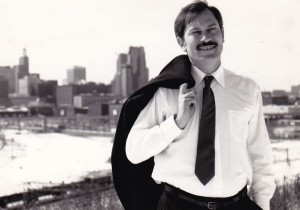What’s a guy going to do?
One of my very first law cases was seeking a pardon for a woman named Lenora doing 10 years for kidnapping. Lenora’s two young children had died in a house fire in Superior, Wisconsin. Bereft, she returned to her roots in the Twin Cities Native American Community. Six weeks after the fire her friend Jessica suggested they head to the Red Lake Reservation. Jessica knew someone who was driving there. On the way they dropped acid which led Lenora to decide she just wanted to go back to the Cities and be miserable by herself, but the driver refused to turn around, so she and Jessica started hitchhiking. The first car that stopped was another young woman who was only going a short distance and couldn’t be convinced to drive all the way back to the Cities – so they put the driver in the trunk and drove themselves. Speeding through Elk Lake they got pulled over and, upon hearing some banging, the cop opened the trunk. Maybe her lawyer tried hard, but the Judge said all the above meant a ten-year sentence at the Shakopee Women’s Penitentiary, even though Lenora was a first time offender high on LSD six-weeks post the death of her children. In prison she got my name and called me.
My first visit to Shakopee was a shocker. At that time there were no prison fences. Anybody could walk away at any time. Ordinary citizens (those not locked-up) lived just a block from the prison. Lenora explained it was really, really hard not to walk, but everybody who did always got caught and it just added to their time. Lenora was very nice, polite, and human, and convinced me, suffering an injustice. Checking into the law, her appeal period was over and the only avenue looked to be asking the Pardons Board (consisting of the Governor, the Attorney General, and the Chief Justice) to let her out for time served (now going on two years).
It was too late to submit a request for the next (semi-annual) Pardons Hearings, and since I had never done one before I asked the Clerk if I could attend to watch how they worked. “I’ll let you know,” he said. At that very early period in my law practice I was still working out of my apartment and only dressed in a suit and tie if I was going to court, so there was no time to put a suit on when I got the call from the Clerk, “They’ll let you in to observe if you can get here in ten minutes.” Fortunately my apartment was only a ten minute drive from the Capitol so I raced over. The Chief Justice asked my purpose and I explained in a way I thought made a good first impression. Afterwards the Attorney General, Warren Spannaus, asked me to give him a call. Excited, I called that very afternoon and he invited me to his office. This time I had time to put a tie on. I was ushered right in for what I thought for sure was going to be a commendation. Mr. Spannaus put his feet up on his desk and said, “You know, it’s important to wear a suit and tie when you come to the Pardons Board.” I couldn’t believe it; of course I knew that. But there was nothing more to the meeting. Years later Warren and I became friends and I came to realize he was just joshing me. Extrapolating from my visit with Warren, would you speak up if your secretary came to work in a low-cut blouse?
Tomorrow: All Part of the Job

